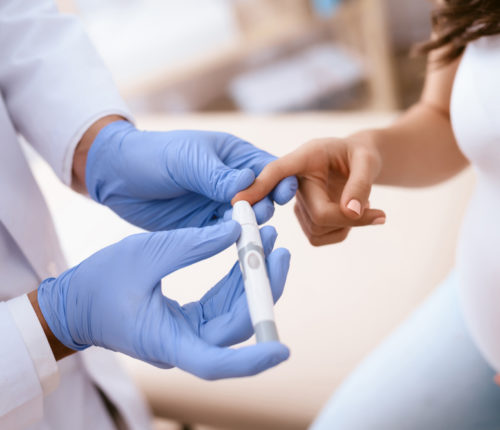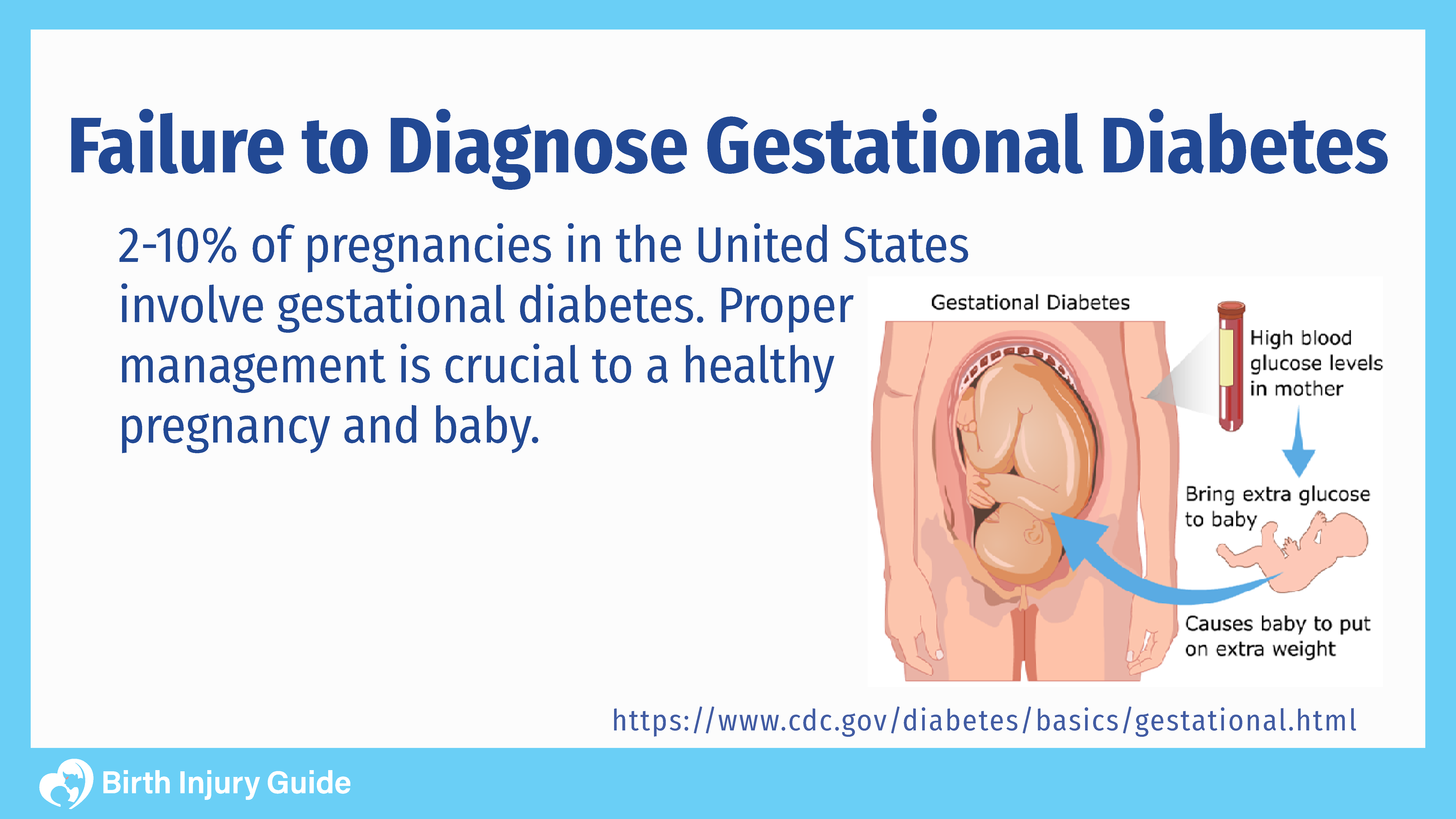
Failure to Diagnose Gestational Diabetes
Gestational diabetes is unfortunately a common occurrence in pregnancy, affecting thousands of pregnant women in the United States each year. Failure to diagnose gestational diabetes or treat it properly can lead to a myriad of medical issues for both mother and baby. Untreated gestational diabetes may also be a form of medical negligence.

Gestational Diabetes Statistics and Facts
According to the American Diabetes Association, gestational diabetes has increased significantly over the past 20 years. The increase has happened for several reasons, including:
- Increase in maternal obesity
- Decrease in physical activity
- Being 25 and older when pregnant
- Family history of diabetes
- Excessive amniotic fluid
- Fewer women who smoke
Gestational Diabetes Symptoms
In many cases, there are no symptoms at all. Some women may go back to a normal blood sugar within a few weeks after delivery. However, other pregnant women may experience:
- Frequent infections
- Fatigue
- Blurred vision
- Nausea and/or vomiting
- Weight loss
- Increased thirst and urination
How Does Gestational Diabetes Affect Infants?
If doctors fail to diagnose gestational diabetes or treat it poorly, infants are at risk for several health issues. When gestational diabetes develops, the pancreas must work overtime in order to produce the insulin needed for your body to lower blood glucose When this occurs, excess glucose crosses the placenta and gives an infant high blood glucose levels, but the infant’s pancreas also creates extra insulin in an attempt to rid the additional blood glucose passed down from the mother. Excess insulin in the baby leads to fat deposition as the insulin drives glucose into the cells. Unused glucose gets stored as fat.
Extra insulin and high blood glucose levels can cause infants to develop fetal macrosomia, also known as “fat baby” syndrome, a condition marked by excessive fetal weight and size. An unusually large infant is at risk for a plethora of birth injuries, including brachial plexus injuries, shoulder dystocia and more. Additionally, infants are at risk for excessive weight gain later in life.
Additionally, if you have high blood sugar during pregnancy, the risk of early labor and delivery significantly increases. Early labor and delivery comes with its own set of risks, including infant respiratory distress syndrome, a health disorder marked by difficulties in breathing. It’s important to note that although respiratory distress syndrome happens more often with preterm deliveries, it can also affect infants who are not born early if the mother has gestational diabetes.
How Does Gestational Diabetes Affect Pregnant Women?
If you develop gestational diabetes while pregnant, it’s important that it is diagnosed and treated properly. Pregnant women with gestational diabetes are at risk for:
Preeclampsia
Preeclampsia is a severe health complication, marked by excessively high blood pressure and protein in the urine. It can also lead to organ damage and is life-threatening to both mother and infant. Other complications of preeclampsia may include:
- Placental abruption
- Poor blood flow to the placenta
- Heart and blood vessel diseases
- HELLP syndrome: Hemolysis, Elevated Liver enzymes, and Low Platelets
- Eclampsia (seizures)
Development of Type 2 Diabetes
Gestational diabetes also increases the risk of having Type 2 diabetes as well as gestational diabetes in future pregnancies. Patients can control Type 2 diabetes, however, by maintaining a healthy weight, exercising, taking medications and incorporating plenty of healthy foods into your diet.
Gestational Diabetes Treatment
The American Diabetes Association states that gestational diabetes treatment requires intervention and help from your doctor and/or nurse. Treatment typically entails monitoring blood glucose levels closely while changing diet habits. In addition, regular insulin injections may be necessary to keep your blood sugar under control.
If applicable, physicians may also recommend physical activities to help you maintain or reduce your weight, as maternal obesity can cause gestational diabetes.
Who is Liable For Failure to Diagnose Gestational Diabetes?
If gestational diabetes is caught early enough, the aforementioned risks will decrease significantly. Your physician has the duty and obligation to detect, diagnose and treat any medical problems while you’re pregnant. A glucola blood test is performed around 28 weeks of pregnancy to detect diabetes. Although liability for birth injuries and other health issues are determined depending on each individual circumstance, if physicians fail to diagnose and treat gestational diabetes, they may be liable for damages, but only if the patient has been compliant with his or her recommendations.



